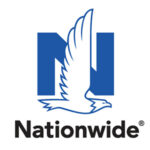Want to Make Your Business Networking More Effective?
Use these 11 tips for successful business networking and structure connections that help bring in business.
Business networking involves making connections not only with likely guests or clients but also with other individuals who might refer business to you or positively mention your name to people they know. It also involves making connections with people who provide information or training and can be an excellent way of locating reputable vendors to hire for your own business.
Although numerous people associate networking with asking for favors, successful networkers know that networking isn’t all about them. Networking in business is about creating trusting connections and camaraderie with other businesspeople. A crucial part of effective networking is helping other businesspeople with their needs. That’s why you’ll find that stylish networkers are frequently connectors who help others by referring clients, providing testimonials, or helping to promote events and other businesses in some way.
Benefits of Erecting a Strong Business Network
How important is networking to small businesses? Ask a small service business where they get most of their clients, and they’re likely to indicate some form of word-of-mouth marketing. The majority indicated that the marketing strategies they were using included networking (68.8%) and referrals (54.3%). Another study reported that 78 percent of startups say networking is vital to their entrepreneurial efforts. Networking is equally important for career success for people who are employees. According to a 2016 report by LinkedIn, 85 percent of all jobs are filled via networking.
Easily, suppose you aren’t taking the time to meet and interact with others in your field. In that case, you’re likely missing out on valuable opportunities to find new connections, induce referrals, and indeed land clients and positions.
Of course, networking isn’t just about building connections. Meeting and interacting with other industry professionals also enable you to continue your education. While you might not have time to attend a seminar or training course, grabbing coffee with a business connection helps you stay abreast of new developments and practices in your field. You can bring these trends back to your current company or use what you learned to better your chances of landing a new position.
11 Tips for Successful Business Networking
-
Attend Business Networking Events
The first step in successful networking is knowing where you should go to make connections. While nearly any function or event can serve as a networking opportunity, small business owners and professionals with niche businesses should attend niche business events. For instance, your city’s chamber of commerce might host gatherings for people in your industry. Also, it’s worth attending meetings with professional associations and societies related to your field.
-
Choose a Focus
It’s hard to get what you want out of your networking endeavors if you don’t start with a clear agenda. Before attending meetings or events, take the time to determine what your goals are for the experience. For instance, you might want to make new connections, contribute your time to the community, or simply learn about the latest developments in your business or industry.
-
Get Social in Your Off Hours
Just because you’re off the clock doesn’t mean it’s time to stop networking. Make an effort to mingle with attendees at your gym or pilates class to expand your reach. You can also make business connections at your child’s school events. After all, parents are generally looking for something to talk about besides what’s happening on the soccer field!
-
Know Your Worth
It’s not enough to provide your clients with a great product or service. However, you can’t hope to convey that information at networking events if you can’t articulate what it is you do. Whether your goal is to induce referrals or simply expand your virtual rolodex for the future, you should take time to craft an elevator pitch that conveys what you do, for whom you do it, and why clients should choose you over your competition.
-
Identify Conversational Icebreakers
Consider opening with a compliment to overcome initial awkwardness and make a good first impression. For instance, you might tell the person sitting next to you at an event that you like their shoes or tie. Also, asking a question gives connections the chance to talk about themselves. Ask how they got into the field or what they think of a recent development affecting your industry.
-
Bring a Buddy
Sometimes starting conversations with strangers is easier if you have a familiar face by your side. Consider attending professional events as a pair if you have a friend or colleague who’s also looking to expand their network. Just be sure you make an effort to connect with other attendees rather than sitting in the corner chatting the whole time.
-
Overcome Introversion
Having success in networking can be a challenge if you’re naturally shy. Fortunately, there are some strategies for overcoming introversion and making connections. First, consider brainstorming icebreakers before a networking event, so you don’t have to come up with ideas on the spot. Second, feel free to take a break if you get overwhelmed. Go to the restroom, take a walk, or grab a coffee. You can return to the room refreshed and ready to meet new people.
-
Find a Reason to Follow Up
Making connections is only half the battle; you also have to find a way to keep the relationship going. Even if you aren’t actively job hunting, strive to reach out to your connections several times a year to follow up. You could share a relevant article, invite them to a seminar or conference, or just send a friendly note during the holidays.
What to Avoid in Networking
Of course, being successful in networking is about more than what you do. It’s also about what not to do. Here are some tactics to avoid if you want to boost your business connections.
-
Don’t Be Negative
When searching for conversation starters, avoid speaking negatively about former companies or associates. After all, you don’t want potential connections thinking you’d say bad things about them given the chance.
-
Don’t Be Selfish
Whether you’re networking at a Chamber of Commerce event or attending an educational meeting, it’s important to remember that networking is about give and take. The relationship is unlikely to last if you’re always the person asking for favors. For best results, look for opportunities to help your networking connections prosper in their own careers.
-
Don’t Be Afraid to Ask for What You Want
We all need help now and again. However, you have to be bold enough to ask for support if you want your networking efforts to be a success. Before attending that upcoming meetup or seminar, make sure you can articulate what it is that you’re seeking. Also, when someone asks how they can help you, tell them the truth.












